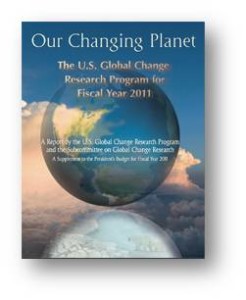 We at IEDRO want to provide the latest scientific findings regarding the planet and our climate. We will do a series that discuss findings that have been found regarding the climate change on a global basis and of man’s activities on these changes.
We at IEDRO want to provide the latest scientific findings regarding the planet and our climate. We will do a series that discuss findings that have been found regarding the climate change on a global basis and of man’s activities on these changes.
The U.S. Global Change Research Program (USGCRP) coordinates and integrates federal research on changes in the global environment and their implications for society. The USGCRP began as a presidential initiative in 1989 and was mandated by Congress in the Global Change Research Act of 1990 (P.L. 101-606) “to understand, assess, predict, and respond to human-induced and natural processes of global change.”
These activities led to major advances in several key areas including but not limited to:
- Observing and understanding short- and long-term changes in climate, the ozone layer, and land cover;
- Identifying the impacts of these changes on ecosystems and society;
- Estimating future changes in the physical environment, and vulnerabilities and risks associated with those changes; and
- Providing scientific information to enable effective decision making to address the threats and opportunities posed by climate and global change.
Their 2009 report stated that a central finding was that the vast majority of climate scientists agree that global warming is unequivocal and primarily human-induced. The report also identified widespread climate-related impacts that are occurring now in the United States and are expected to increase, including:
- Climate change is expected to stress water resources.
- Crop and livestock production increasingly will be challenged in a warmer climate.
- Risks to human health will increase due to heat stress, waterborne diseases, poor air quality, and diseases transmitted by insects and rodents.
They conclude that the future climate and its resulting impacts on society depend on choices made today. Even if societies substantially reduce their emissions of greenhouse gases, some changes are unavoidable due to millennium-scale processes in the atmosphere and oceans. Nonetheless, careful planning and assessment of climate change impacts will be important for effective mitigation and adaptation policies.
Their 2011 report states that the program intends to place greater emphasis on impacts, vulnerabilities, and on understanding the options for adapting to the changing climate as well as to continue support for activities that contribute to a better understanding of the Earth system, including observations, research and predictive modeling.
Their advances have been documented in numerous assessments commissioned by the program and have played prominent roles in international assessments such as those of the Intergovernmental Panel on Climate Change.
Program results, summarized in Our Changing Planet, can be downloaded for free at http://www.globalchange.gov/publications/our-changing-planet-ocp.

Comments are closed.